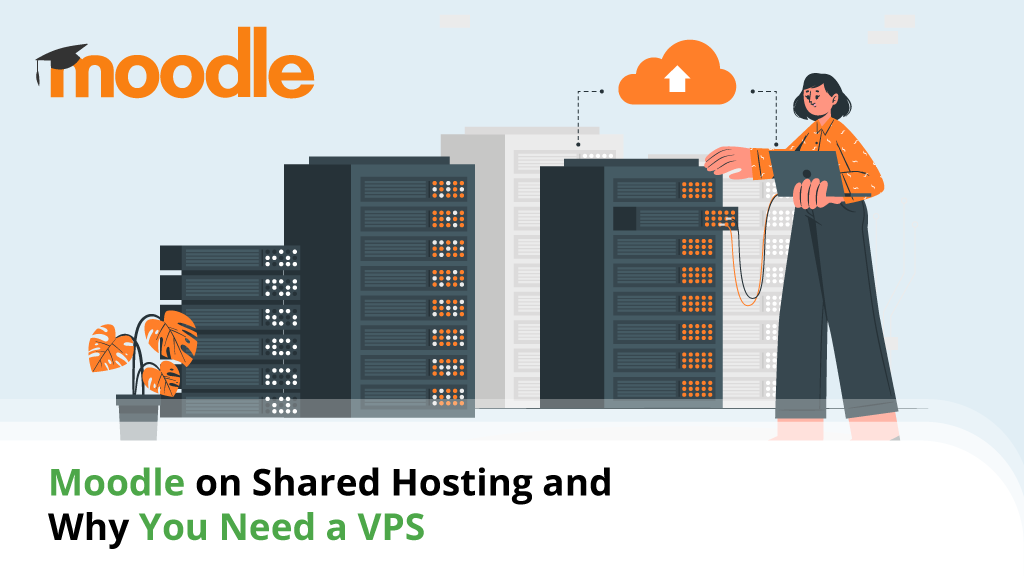
Building a successful online project nowadays is a piece of cake. You can take your pick between a plethora of hosting providers and hundreds of site-building apps, all coming with their own unique benefits.
But before you jump headfirst into your new online venture, there is one more question you need to consider — what is the right hosting service for me? The one that will supply enough resources for your website at an affordable monthly rate
It’s not like you lack alternatives — there are shared services, dedicated solutions, WordPress hosting deals, cloud servers…and the list goes on and on.
In recent years, one type of hosting has been showing immense growth in client base and market share — VPS hosting. We are talking about a niche that is already valued at nearly $5 billion and responsible for the smooth running of hundreds of millions of websites worldwide.
But let’s start from the beginning.
The following review includes essential information, such as:
What is VPS Hosting?
Virtual private servers are the next logical solution when you outgrow your shared account. They represent virtual instances of a physical server, where each client gets a dedicated share of the resources in an isolated environment. This means you are getting a certain amount of CPU, RAM, disk space, and bandwidth for your needs alone.
Providers supply VPS servers through a process called virtualization. This allows them to split a machine into several virtual independent instances, each with its own operating system, resources, and software environment.
Generally, there are two types of VPS solutions:
- Managed VPS — you get limited administrative access to the server, and your hosting provider takes care of all the technicalities. Suitable for startups and novice users.
- Unmanaged VPS — you get full root access, free to install and run whatever OS or software you wish. The host is responsible for the initial setup only and does not provide technical support. Suitable for web developers and enterprises with in-house server admins.
The VPS architecture solves a lot of the problems coming with shared hosting accounts.
VPS Hosting Advantages
So what makes virtual private servers so special? And, more importantly — how to know when you need VPS hosting in the first place?
- Enhanced Scalability — VPS solutions are a perfect choice for growing businesses. Once your website becomes more popular and starts welcoming hundreds and thousands of visitors, your server resources will quickly begin to dwindle. The virtual platform allows you to add and remove resources on-the-go and ensure optimal speeds and constant availability for your web projects.
- Full Control — VPS servers are ideal when you need to customize every little detail of your website. The shared environment (understandably) limits you in your administrative access as you can change the settings for all clients on the same server. As you are isolated on the VPS, you can go wild with customizations and ensure the optimal configuration regardless if your website is WordPress, Joomla, or Magento-based.
- Optimized Security — Virtual servers are perfect for mission-critical websites. A shared client is only as secure as all other neighboring accounts on the same machine. You can apply all the needed security measures and still get hacked through a vulnerability you have no control on. The VPS puts your account in a virtual cage, making it impervious to outside attacks.
VPS Hosting Disadvantages
Along with all the advantages, there are a few obstacles to consider if you are about to move to a VPS server.
- Some Technical Experience Needed — Even if you opt-in for a managed VPS service, it never hurts to know a thing or two about server management. It’s not like you can’t still build and promote a great website — you can absolutely do so.
But having some experience with virtual machines will give you the ideas and know-how on how to improve every little detail of your online project. Things like resource allocation, security measures, and software performance can all be optimized with the help of a VPS.
- More Expensive than Shared — Compared to the shared hosting service, VPS solutions are understandably costlier. You have much fewer customers on one server to split the bill, plus you get a ton more in terms of system resources and extra features. Virtual servers have been getting more and more affordable in recent years, but shared hosts are still more preferred for low-budget projects.
Alright, so based on what we’ve learned so far, let’s answer the big question.
When Do You Need VPS Hosting
Based on the characteristics of the major types of hosting services, we can conclude the following:
- You need VPS hosting when your website starts growing and needs more traffic and resource scalability. The virtual servers are well-suited for online shops, corporate pages, and enterprise apps because of the dedicated server power and military-grade security.
- Shared hosting is more appropriate for personal and startup projects, websites that don’t need much in terms of disk space, RAM, and bandwidth. The low entry costs are perfect for anyone starting on a small budget.
- You would get an unmanaged or dedicated server if you want full control and have the technical knowledge to operate a server on your own. Capabilities are limitless, but you cannot count on any support from the host.
And now comes the best part…
VPS Hosting with Scala Hosting
Scala Hosting is putting a strong focus on VPS solutions, and our goal is to provide stellar service at the best possible price. We offer three distinct packages, for both managed and unmanaged virtual servers, starting with 1 CPU core, 2 GB RAM, and 20 GB SSD space.
But what makes our VPS offers so special?
For starters, we operate with LiteSpeed and OpenLiteSpeed, the fastest server technologies on the market, allowing us to give every website more than enough power to operate at maximum speeds.
Looking to get the most out of the current technology, we have developed our state-of-the-art control panel called SPanel. It allows users to operate their web server with zero previous experience, install software, manage domains and emails, practically everything.
In terms of security, we have another in-house solution named SShield. The tool comes with 24/7 server monitoring and advanced DDoS protection. The malware scanner utilizes machine learning, which helps to correctly identify and block over 99.998% of known web attacks.
This wonderful VPS bundle, packing features worth over $84, now comes at just $9.95/mo, a price comparable to shared services many other hosts.
Want a third-party perspective on the pros and cons of using VPS hosting with Scala Hosting? Check out this Scala Hosting review.
Conclusion
As you can see, technological evolution allows VPS services to become more and more versatile, gradually replacing the less powerful and less secure shared hosting. So, the next time you pick your new hosting service, don’t just consider the current state of your website — think for the future as well.
FAQ
Q: When would you use a VPS?
A: A virtual private server is the next logical step when you outgrow your shared account. Whether you need more space, dedicated RAM, or more control over customizations — a VPS might be the answer to your prayers.
Virtual servers are the right solutions when you’re hosting online shops as well. The highly secure environment is vital when you’re processing payment information and other important client data, so you cannot overlook that aspect.
Q: How much does a VPS cost?
A: It’s hard to define a price range for virtual private servers because the monthly rates depend on many factors. Is the service managed or unmanaged? Are there any extra features tied to it? How about unique offerings?
Usually, you can find VPS solutions starting from $15-$20/mo, but servers for over $50/mo are also not a rarity. In the end, you are looking for cost-effectiveness — getting the best value for your money.
Q: What can I host on a VPS?
A: You often get full control over your virtual machine, which is one of the main reasons people prefer it for many types of projects. You can use your VPS as a mail server, gaming machine, develop an app on it, turn it into a VPN. As long as you have the needed skills (or help) to set it up and run the software required — you are absolutely free to do it.
Among other popular users of virtual servers, you can find schools, online shops, high-traffic websites, and many others.
What is a VPS – Everything you need to know!



